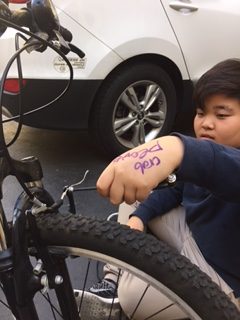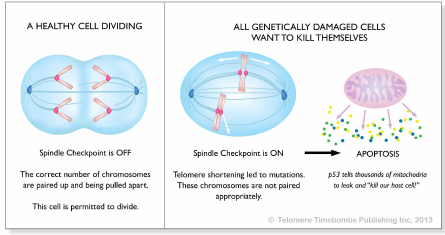
Yesterday, I spent more time than I cared to admit trying to fix my son’s front wheel brakes. I watched YouTube videos, I tinkered, experimented, then I gave up.
I went to see a man named Chuck who had a bike shop, fairly confident in my intuition that the problem was not me or the equipment, but rather something was wrong with the configuration.
Sure enough, Chuck took one look and told me the wrong piece was being held by the caliper.
When I got home, it took me and Oliver all of 45 seconds to fix by putting the correct piece into the caliper.

The reason I couldn’t fix the brake was that I had framed the problem incorrectly. No amount of fixing the problem in the current configuration would have helped.
I believe the same principle of an unsolvable problem occurs when we focus on things such as mitochondrial dysfunction. Whatever the late stage errors are caused by, whether they be p53 mediated perforation of the organelles or some epigenetically-mediated miscommunication between the nuclear computer and the mitochondrial functions as currently popularized by David Sinclair.

The problem of a misconfigured brake caliper or broken nuclear-mitochondrial signaling are similar – we are trying to fix something that is not-fixable. Something got messed up which is beyond our current level of understanding.
But my epiphany was that unlike the expense of buying a new bike, cells are easily replaced so on a global scale, it is better to not seek an explanation as to why the stem cell genetics and epigenetics are broken. Just replace the stem cells with fresher ones.
For fans of Star Trek, the current framing of defeating aging resembles the famous “Kobayashi Maru” Starfleet Academy simulation. It is a no-win scenario like fixing a misconfigured brake caliper or a late-stage senescent stem cells mitochondria.
It is better, I believe to change the rules by having fresh stem cells which we can use like replacement parts for hundreds of years. See this blog for a primer on how to cheat the Kobayashi Maru no-win scenario of aging.

